“I wake up and I witness war everyday,” says 10-year-old Rahaf who lost her parents and her younger sister along with 10 other members of her extended family in a missile strike in her native Mosul last year.
“I don’t want to go through another war. I don’t want other children to become orphans. It is enough that I am an orphan in this world.”
An Islamic State fighter dug Rahaf (not her real name) out of the rubble of the house and eventually her uncle was able to get her treated for shrapnel injuries in her legs. But her mental scars are taking longer to heal.
And Rahaf is not alone.
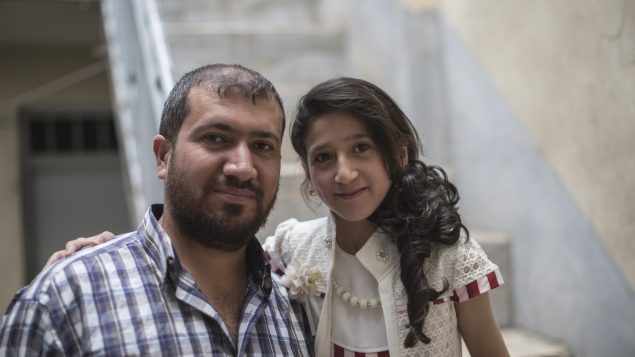
Rahaf, 10, is photographed with her uncle, Abdullah, 35, (not their real names) at his house in West Mosul, Iraq, on July 17, 2018.
(Sam Tarling/Save The Children)
A year after Iraqi forces drove out ISIS from Mosul, the city’s children are still living in near-constant fear for their lives, trapped by memories of devastation, displacement, bombing and extreme violence, according to a new report from Save the Children.
With hundreds of thousands of children living amidst the rubble left by the U.S.-led aerial bombardment and fierce house-to-house fighting to recapture the former ISIS stronghold and Iraq’s second-largest city, even teenagers report being too scared to venture out alone or stay without their parents or guardians.
Children are reporting serious emotional problems, depression, extreme anxiety and have been pushed to breaking point, says the report entitled Picking Up the Pieces: Rebuilding the lives of Mosul’s children after years of conflict and violence.
More than 80 per cent of adolescents surveyed said they did not feel safe walking alone and almost half did not feel safe away from their parents.
Vestiges of violence
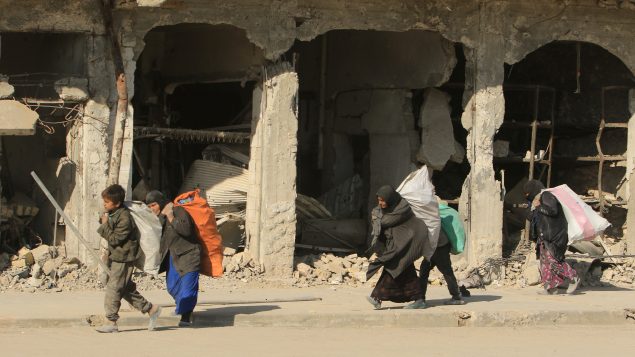
Iraqi people carry bags in Mosul, Iraq, January 10, 2018. Picture taken January 10, 2018. (Ari Jalal/REUTERS)
Almost half of children surveyed felt near-constant grief. Fewer than one in 10 children could think of something happy in their lives.
“A year after the dire reality of an adolescent in Mosul is a constant presence of experiences that they’ve had over four years either being caught in Mosul or being in an internal displacement camp,” said Save the Children Canada’s President and CEO, Bill Chambers.
“There is still vestiges of the violence all around them, their schools have not been rebuilt – they’re still finding bodies – and just to the west of Mosul in the countryside there is active conflict and violence happening, so there is no way of just moving on.”
(click to listen to the interview with Bill Chambers)
ListenThat’s having serious consequences on the mental health and well-being of adolescent children in Mosul and their ability to live normal lives, said Chambers who visited Iraq earlier this year and witnessed the effects of war on children firsthand.
Focus on the ‘future of Iraq’
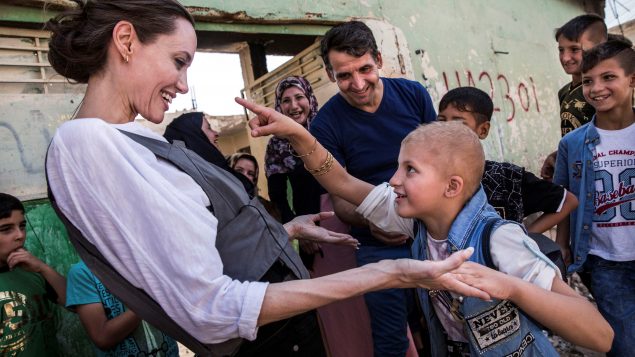
UNHCR Special Envoy Angelina Jolie meets Falak, 8, during a visit to West Mosul, Iraq June 16, 2018. (Andrew McConnell/UNHCR/Handout via REUTERS.)
With about 60 per cent of Iraqis being under 25 years old, the report focused on adolescents between the ages of 13 to 17 years old.
“One of the things that we’re trying to understand is how can we support the group that is just about to go into what we consider adulthood and will and should play a very important role in developing the future of Iraq, finding a way out of the current chaos, frankly,” Chambers said.
The study, which surveyed more than 250 children and caregivers from West Mosul, found very high levels of cumulative stress among adolescent children, he said.
“That’s something that can live with you your whole life and affect how you operate,” Chambers said. “So we need to ensure that in designing the stabilization and reconstruction of society there that we look to also providing opportunities for these young people to work through some of what they’ve lived, regain their sense of resilience and optimism about the future.”
Children, many of whom have lost their parents and are being cared for by members of their extended family or distant relatives , also need tools to help them adjust to and deal with very high stress, depression and ongoing fear and anxiety, Chambers said.
“Their homes are not safe, their homes don’t feel safe, they don’t feel like they can walk alone without their parents and be secure,” Chambers said. “They don’t feel safe at their schools. They’ve come back to schools that are not only damaged and sometimes destroyed but have dead bodies still in them.”
Funding shortfall for mental health programs
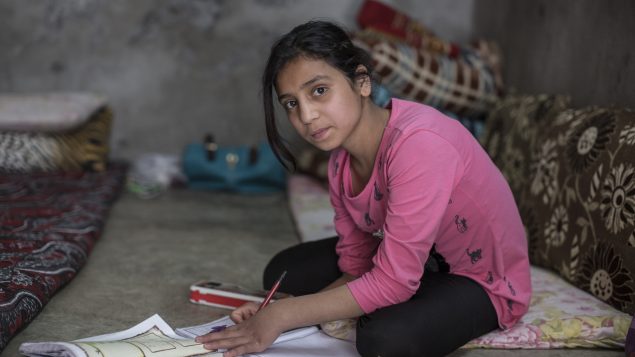
Dina (not her real name), 12, does some homework before school in the simple home she now lives in with her aunt in West Mosul, Iraq, on July 17, 2018.
(Sam Tarling for Save The Children)
Given the Liberal government’s focus on gender responsive humanitarian assistance, Canada must ensure its funding includes support to gender and age appropriate mental health and psychosocial initiatives, including the creation of child-friendly safe spaces, he said.
As Canada prepares to renew its three-year funding commitment for humanitarian assistance in Iraq this fall, Save the Children is calling on Ottawa to put the wellbeing of children at the heart of planning for post-conflict Iraq, Chambers said.
Only 7 per cent of funding for mental health programs and services that were identified and requested in the UN humanitarian appeal has been met, Chambers said.
Amy Mills, a spokesperson for Global Affairs Canada, said the government recognizes the importance of providing specialized support and services to respond to psychosocial and mental health needs and gender-based violence, particularly for women and children affected by humanitarian crises.
“This is why Canada is providing $179.5 million in humanitarian assistance funding for Iraq over three years (2016-2019),” Mills said in an emailed statement to Radio Canada International.
This includes emergency education and child protection, including psychosocial support, and specialized services for survivors of sexual and gender-based violence and their children, in line with Canada’s Feminist International Assistance Policy, she added.
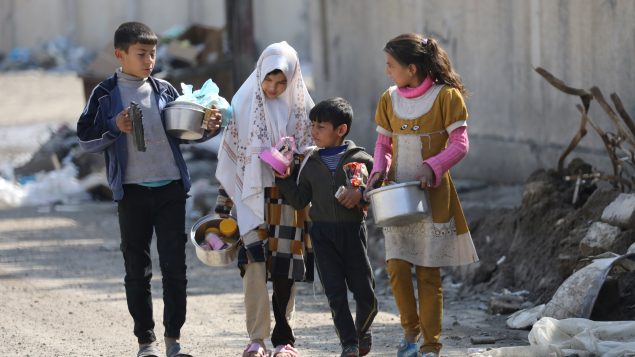






For reasons beyond our control, and for an undetermined period of time, our comment section is now closed. However, our social networks remain open to your contributions.